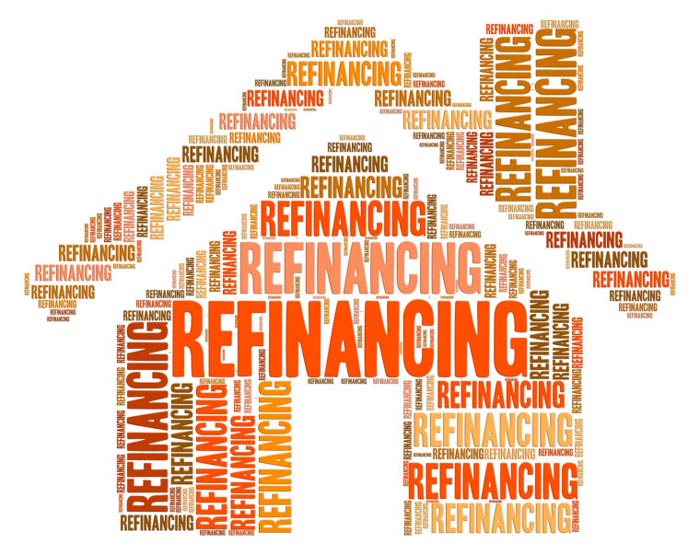
You’ve probably heard the “R” word – “refinancing” – a lot over the last year. With the market turning and interest rates inching up, a lot of people are considering taking a look at their existing mortgage and locking in different terms. But in your situation, is refinancing your home loan a smart choice?
Refinancing is a term that gets thrown around so much that it’s easy to assume everyone is on the same page – but let’s not take that for granted.
In simple terms, refinancing is the process of swapping loans and moving debt to a different lender or loan. In other words, you have your existing loan and you apply for a new loan. The new loan pays off the existing loan and you’re now obligated to fulfill the requirements of the new loan.
It’s also important to note that there are two basic types of refinancing: (1) rate-and-term and (2) cash-out. With rate-and-term refinancing, the goal is almost always to save money by refinancing the remaining loan balance at a new rate and terms that are more affordable. With cash-out refinancing, you take out a new mortgage for more than you previously owed. You can then use the extra cash for whatever you need.
In the vast majority of cases, people complete rate-and-term refinancing (and that’s what we’ll discuss in this article). Cash-out refinancing is risky and never encouraged unless there’s a dire situation.
When it comes to refinancing, you can typically come to a conclusion on how to proceed by comparing the pros and cons. Generally speaking, here are some of the biggest reasons people move forward:
The most obvious reason for refinancing has to do with lower interest rates. If you’re currently paying 7.50 percent, but could refinance down to 4.00 percent, you’ll probably save thousands of dollars over the life of your loan.
Is your monthly mortgage payment simply more than you can handle? By refinancing your mortgage to a term that’s longer than what you currently have left on your existing loan, you’ll naturally end up reducing your monthly payments. Depending on how much equity you have in the home and how the new rate compares to the existing rate, this could save you hundreds of dollars per month and free up a chunk of your budget for other expenses.
Did you have a low credit score when you secured your mortgage? If so, you probably got a higher than average interest rate and poor terms. If your credit score has improved considerably over the past few years, refinancing may allow you to get better terms with a lower interest rate that will save you hundreds of dollars per month.
While some people refinance and lengthen the life of the loan (as a way of cutting monthly payments), savvy homeowners know that refinancing also works the other way. By refinancing from a 30-year fixed to 15-year fixed, you might end up paying more per month, but you’ll pay off the loan a lot quicker. In doing so, you could save tens of thousands of dollars in interest over the life of the loan.
In order to qualify for a loan when you purchased your house, you might have been required to use an adjustable rate mortgage (ARM) loan. While the rates are typically very competitive, they actually begin to increase after a certain period of time (typically five or seven years). If you’re worried interest rates will rise significantly down the road, now may be a good time to convert to a fixed-rate mortgage.
Refinancing isn’t for every person or situation. Just because you can, doesn’t mean you should. Here are some potential strikes against refinancing:
Any time you consider refinancing, you have to pay careful attention to the break-even point. This is the amount of time it will take you to recover the closing costs on the new mortgage. Since closing costs tend to be two to five percent of the loan, it could take a few years for you to even out. So, if you’re planning to move next summer, you’d actually lose money on the refinance.
As mentioned, closing costs aren’t exactly cheap. Even on a small $150,000 refinance, you might pay $3,000 or more at the closing table. If you’re already hurting for cash, this is just going to make your situation worse.
Some people refinance because their credit has improved, but what if your credit has gone down since you originally secured your mortgage? In this case, you could actually stand to lose a lot by refinancing. It’s better to stay locked in and keep the more favorable terms.
If you only have 23 years left on a 30-year fixed-rate mortgage and you choose to refinance back to a 30-year fixed, you’re going to end up paying more in interest over the life of the loan (even if the monthly payments are smaller). By the time you pay off the loan, you would have paid interest for 37 years.
At Green Residential, we know the Houston real estate market better than almost anyone. Our family-owned business has been around for more than three decades and the focus has always been on you, the client. For more information on how we can help you with your real estate needs, please contact us today!
